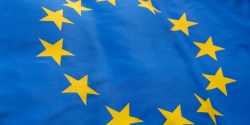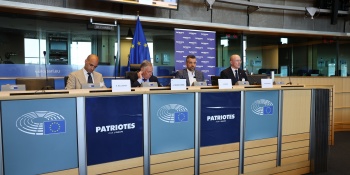Published: 28.02.2022

· Emily O’Reilly presented the European Ombudsman’s activity report for 2020 to the European Parliament.
· The Ombudsman’s findings show that both the European Commission and the Council made a number of errors.
· The European Commission is accused, for example, of a lack of transparency in the negotiations concerning the COVID-19 vaccines and their purchase and distribution.
· The Ombudsman conducted an inquiry into the Council’s refusal to address the issue of corporate sponsorship of the EU Council Presidency.
·It also pointed to numerous conflicts of interest within the EU structures. The Ombudsman called on the Commission to ensure that the scientific experts advising it are not subject to conflicts of interest and to improve its processes for assessing the independence of the scientific experts advising it.
· Procurement irregularities include the EC’s decision to contract BlackRock to carry out research to be included in policies governing the company’s business interests.
· The EU also has a huge problem with the so-called ‘revolving door’ effect – the transfer of its former officials to the private sector.
During the February session of the European Parliament, acting European Ombudsman (EO) Emily O’Reilly presented her report on her activities in 2020. The image that emerges of the kind of activities and the scale of activity that the Ombudsman has had to undertake as a result of irregularities within the European Commission and the Council is frightening. The allegations include succumbing to lobbying, benefiting from corporate sponsorship, acting to the detriment of the Member States and being unwilling to make changes to ensure the transparency of their actions.
The welfare of citizens or the interests of pharmaceutical companies?
One of the issues raised by O’Reilly is the lack of transparency during negotiations with pharmaceutical companies during the COVID-19 crisis. Despite the fact that citizens of member states have a full right to information, the EC agreed to include non-disclosure clauses in contracts with vaccine manufacturers. The Commission attempted to explain this by the alleged rights of pharmaceutical companies and itself to conceal and not fully disclose certain information relating to these contracts or COVID-19 vaccines. Although the Ombudsman called for the immediate publication of the full dossier, the EC is still delaying the publication of versions of the contracts containing confidential data and transparent information about COVID-19 vaccine research, development, purchase and distribution.
Emily O’Reilly also found that the European Centre for Disease Prevention and Control (ECDC) had numerous irregularities in its activities related to COVID-19. These included gaps in its transparency practices, including in relation to data used in risk assessments. This means that the ECDC was unable to fully justify its actions and decisions that took place in 2020 in relation to the pandemic, despite being the key EU entity collecting and publishing information on vaccination, and its mandate to ‘strengthen public confidence in the EU’s COVID-19 vaccination strategy’.
Private sponsorship of the Council Presidency
The irregularities the Ombudsman investigated in the Council of the EU also proved to be very worrying. It appears that it is becoming increasingly common practice for Member States to seek commercial sponsorship to cover the costs of the Council Presidency. Such sponsorship often entails allowing companies to display their names and logos alongside the official logos of the Council Presidency and to declare that they ‘support’ the Council Presidency. It cannot be excluded that sponsorship agreements also contain other politically relevant provisions. While it is clear that the use of such sponsorship by the EU Council Presidency entails reputational risks and a loss of public confidence in its activities, the Council of the EU initially refused to address the issue, considering that ‘the sponsorship of the Presidency is the sole responsibility of the government of the Member State holding the Presidency’. Following the Ombudsman’s intervention, the Council agreed to ‘consider issuing guidelines’ to curtail this practice, suggesting that the mechanism will continue to operate as before for a long time to come.
O’Reilly also highlighted the scale of conflicts of interest within the EU’s structures. Among the irregularities cited, of particular note is the issue of the EC’s approval of ‘active substances’ used in pesticides, even in cases in which serious concerns have been identified. Another particularly serious issue is the case of BlackRock Investment Management, which was awarded a public contract by the European Commission despite the fact that the company’s offer raised concerns from the outset, e.g. due to its extremely low price. Winning the contract has enabled BlackRock to gain insight into, and secure influence over, a growing investment area of great and increasing importance to its clients, and therefore to the firm itself.
The final area affected by so many irregularities is the banking sector, where the so-called ‘revolving door’ effect is particularly prevalent. Cases referred to the Ombudsman have repeatedly drawn attention to the fact that high-ranking officials have moved to the private sector, with the result that confidential data previously obtained may end up in the financial sector. This situation is caused, for example, by the fact that the European Investment Bank has a long-standing practice of allowing its vice-presidents – who are, after all, nominated by the Member States – to supervise the EIB’s lending in their countries of origin. What is more, recommendations to change this policy have so far failed to receive a positive response.

Wednesday's presentation in Brussels of the European Union reform plan developed by Poland’s Ordo Iuris Institute and Hungary’s Mathias Corvinus Collegium garnered significant interest. Nearly a hundred MEPs and their staff from many countries came to the presentation of this proposal.

• Amendments to the directive on the rights of victims of crime are currently under consideration in the European Parliament.

10.06.2025
According to the authors of the report published today, titled “Violations of the Principles of a Democratic State of Law and the Rule of Law by the Government Donald Tusk after December 13, 2023,” the authorities, under the leadership of Polish PM Donal

09.06.2025
Presidential elections, which have just taken place in Poland, were won by the candidate supported by the opposition. According to the law, the validity of the elections should be decided by the Extraordinary Review and Public Affairs Chamber of the Supreme Court. However, the government is questioning the competence of this chamber, which could be interpreted as an attempt to obstruct the transfer of power to the newly elected president.